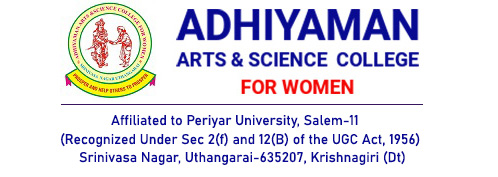Legal literacy is a critical component for the health of any institution, and the field of higher education is no exception. Legal illiteracy can be a toxic drain on institutional resources, and in some cases, can even threaten to bring about the end of an institution completely through sudden and unexpected federal enforcement actions. And while faculty and administrators cannot necessarily fix every legal problem a college might face, there is one area where legal advisors can play a crucial role to help save money: taxes. While most students will probably not have a direct role with tax compliance processes, students will likely have the opportunity to learn about the subject in business or law classes. As future leaders of institutions, understanding the importance of tax compliance and appeal processes can help colleges save valuable resources. When grant funds and student tuitions are both at risk over a tax dispute, it’s important to understand where legal advisors can help: a local tax attorney typically handles the following: When faced with the possibility of a tax dispute, research is critical to prevent costly mistakes. Below are a few ways to locate a tax appeal attorney. Start with your local state bar association to narrow down legal counsel. Local search: Online search: Personal connections: Once legal counsel has been located, ask to sign up for an initial consultation. Note that tax appeals may take several months to resolve, but understanding the process may save significant money in educational expenses and lower the tax burden on an institution. Unfortunately, not everyone who goes into higher education will be in a teaching position. However, the ability to work as a researcher or business advisor can be useful for some students. Attorneys specializing in higher education law, including credit counseling and student financial aid abuse, often work inside larger firms, or as representatives of larger law firms who assist both students and the colleges. This can put them in a unique position to provide significant value to educational institutions. Even for those who do not become attorneys, the above opportunities can allow students to be present for some of the most important negotiations of the fiscal year. Being on the front lines of a successful negotiation can help mold future leaders who can continue to help institutions run smoothly. If a school seeks the counsel of a tax appeals attorney, there are numerous benefits. For example, attorneys can identify loopholes and create tax strategies to maximize tax credits. They can also redistribute existing funds to ID organizational inefficiencies and help minimize penalties. Further, an attorney can communicate on the university’s behalf with tax authorities. Disputes over taxes can be hard to dodge. But having legal advisors can mean the difference between regular budgeting and ongoing tax disputes that consume valuable resources and disrupt the learning environment. Unlike common college life distractions, legal issues can place significant stress on a student body. With the right financial planning and tax assistance working behind the scenes, faculty and students can rest easy. That makes winning a tax appeal a win-win for everyone involved. In short, knowledge is power, and legal knowledge is no different.
Recent Posts
- F12 Wager Logon E Cadastro: Tais Como Contarse Na Plataforma
- Doppelbuch online spielen 2025 Kostenlos & um Echtgeld
- Make many of the lesbian sugar mama dating site in order to find your soulmate
- Top Online Casino Games for 2025: Play & Win Real Money
- Mostbet On The Internet Мостбет Официальный Сайт Букмекерской Компании И Казино
Archives
- April 2025
- March 2025
- February 2025
- January 2025
- December 2024
- November 2024
- October 2024
- September 2024
- August 2024
- July 2024
- May 2024
- April 2024
- November 2023
- October 2023
- August 2023
- July 2023
- June 2023
- May 2023
- April 2023
- March 2023
- February 2023
- January 2023
- November 2022
- October 2022
- September 2022
- August 2022
- July 2022
- June 2022
- May 2022
- April 2022
- March 2022
- February 2022
- January 2022
- October 2021
- September 2021
- August 2021
- July 2021
- June 2021
- May 2021
- April 2021
- February 2021
- December 2020
- November 2020
- October 2020
- September 2020
- August 2020
- July 2020
- June 2020
- May 2020
- March 2020
Categories
- ! Без рубрики
- 1
- 10000_sat
- 10100_sat
- 10170_sat
- 10200_prod3
- 10200_sat
- 10200_sat2
- 10250_prod
- 10350_sat
- 10400_sat
- 10cricbet 995
- 11
- 11400_prod
- 1win Casino Argentina 624
- 2
- 20 Bet Casino 81
- 20bet Bonus 180
- 20bet Casino 638
- 9700_sat
- 9700_sat2
- 9760_sat
- 9900_sat
- adobe generative ai 1
- adobe photoshop
- AI News
- App Betano 388
- Becric Casino 511
- Best Online Casino Australia 415
- beste online casino buitenland
- Bet20 Casino 62
- Betano Bonus 69
- Betano Casas De Apostas 792
- Betmexico App 393
- Betnacional Aviator 840
- Betsul Cassino 818
- Betsul Login 893
- Big Casino Accedi 552
- blog
- blogtanit1
- Bookkeeping
- br-2
- Breaking news
- breaking-news
- casino
- casino online buitenland
- Casino Party 638
- casino-game
- Crickex Bet 201
- Education
- Fansbet Promo Code 631
- FinTech
- Flagman
- Forex Trading
- fr
- game-online
- Home & Family, Home Improvement
- Home & Family, Home Improvement
- Indibet Betting App 749
- IT Vacancies
- IT Образование
- jardiance
- Latestnews
- Loto Club 114
- Lucidity Cbd Oil 622
- Mcw Casino App 733
- medic
- Mma Bet E Confiavel 340
- Mostbet Casino 829
- Mostbet Kazino 917
- Mostbet Login 706
- Mostbet Login 997
- Mostbet Online Casino 892
- Mostbet Skachat 762
- Motor
- nastya
- new
- news
- news-top
- ng customer experience
- nv casino
- Parimatch Live 399
- Party Casino Bono Sin Deposito 210
- Party Casino Bono Sin Deposito 294
- Party Casino Bono Sin Deposito 635
- Party Casino Bono Sin Deposito 844
- Partycasino App 69
- Partycasino Bonus Code 10€ 959
- PinUp
- Pinup casino
- PinUp Giriş
- Pixbet Entrar 201
- pınco
- Play Croco 2
- Queen 777 Casino 173
- Queen 777 Casino Login Register 617
- Queen777 Casino Login 474
- Realsbet Aposta 460
- seo-linkk
- slot-casino
- slot-gacor
- Slottica Casino App 782
- Slottica Kontakt 729
- Sober living
- Software development
- Starcasino Bet 871
- Tala888 App Download 562
- top-news
- Uncategorized
- World News
- xarelto
- Zet Casino Promo Code 56
- Микрокредит
- Финтех
- Форекс Брокеры
- Форекс Обучение






